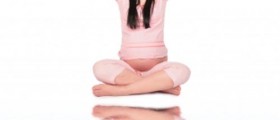
Edema is especially common in expectant mothers who are not very physically active. If you have a long commute to work, or if you have an office job, you are bound to notice some degree of swollen ankles and feet in pregnancy. Changing positions as often as you can, stretching your legs while you are at your desk, and taking frequent breaks to go for short walks, can do wonders. Water retention is caused by the additional blood volume every woman has while they are "with child" pooling around the extremities. Pregnancy and your growing uterus put the veins and internal organs under more pressure than usual, which means the flow of blood from your legs back to your heart takes a bit longer than it normally would.
Besides physical activity, drinking plenty of water is the best way to fight water retention. Dehydration can cause a wide range of problems in pregnancy edema is just the tip of the iceberg. Comfortable shoes without heels and loose fitting clothes can also help you keep edema at bay. Swollen ankles during pregnancy are slightly irritating but nothing to worry about. But if you notice a swollen face and swollen hands, and they will not settle down, it is time to contact your doctor. These could be signs of preeclampsia, and need to be taken seriously.

















Your thoughts on this
Loading...